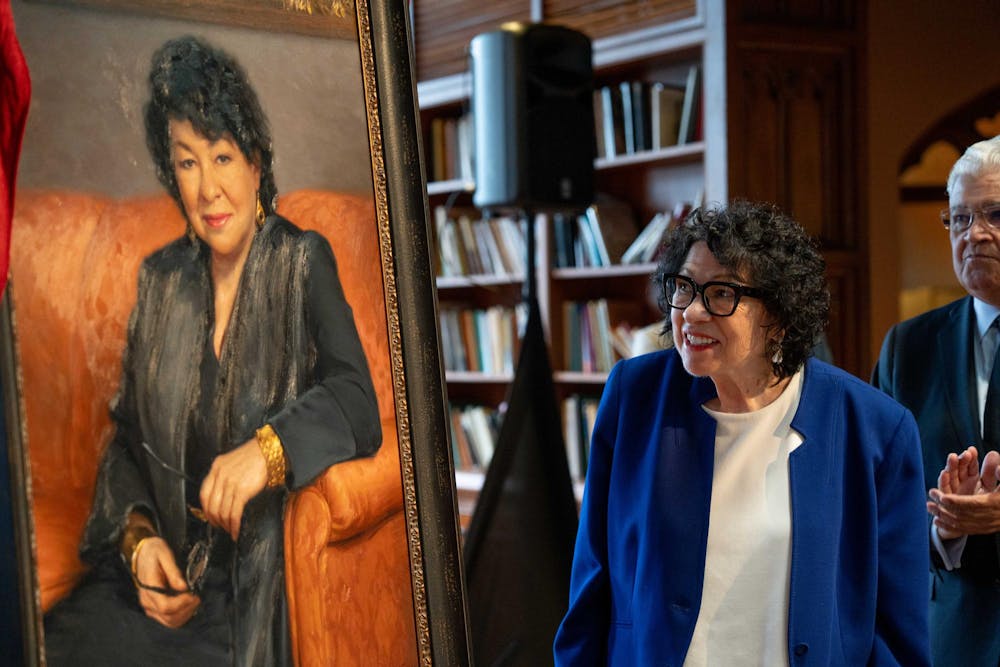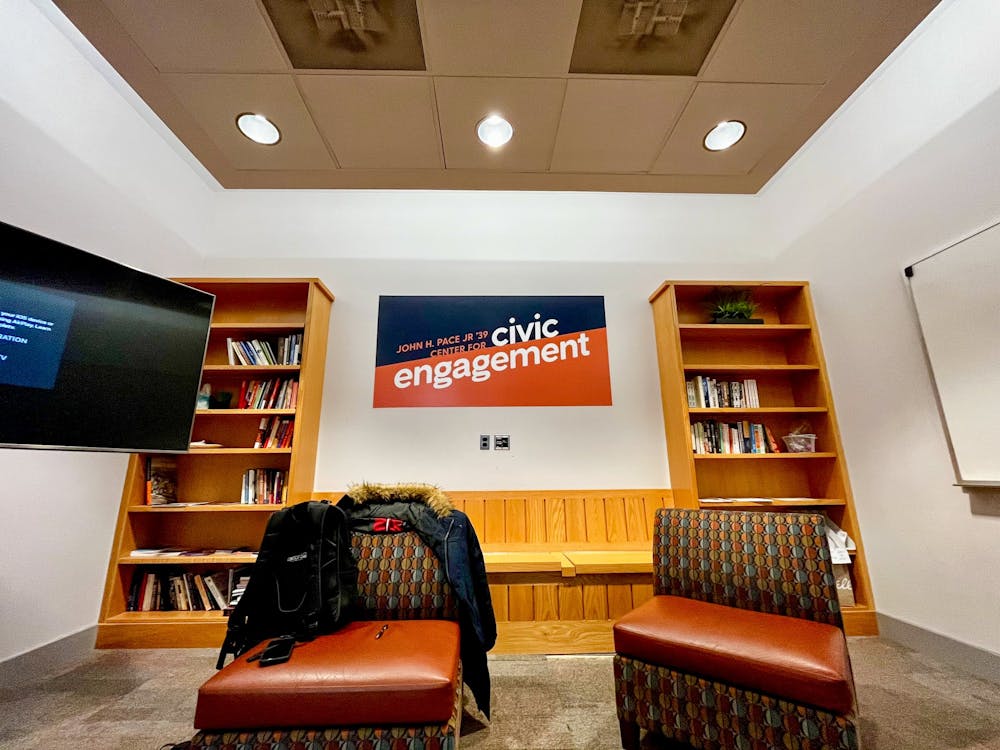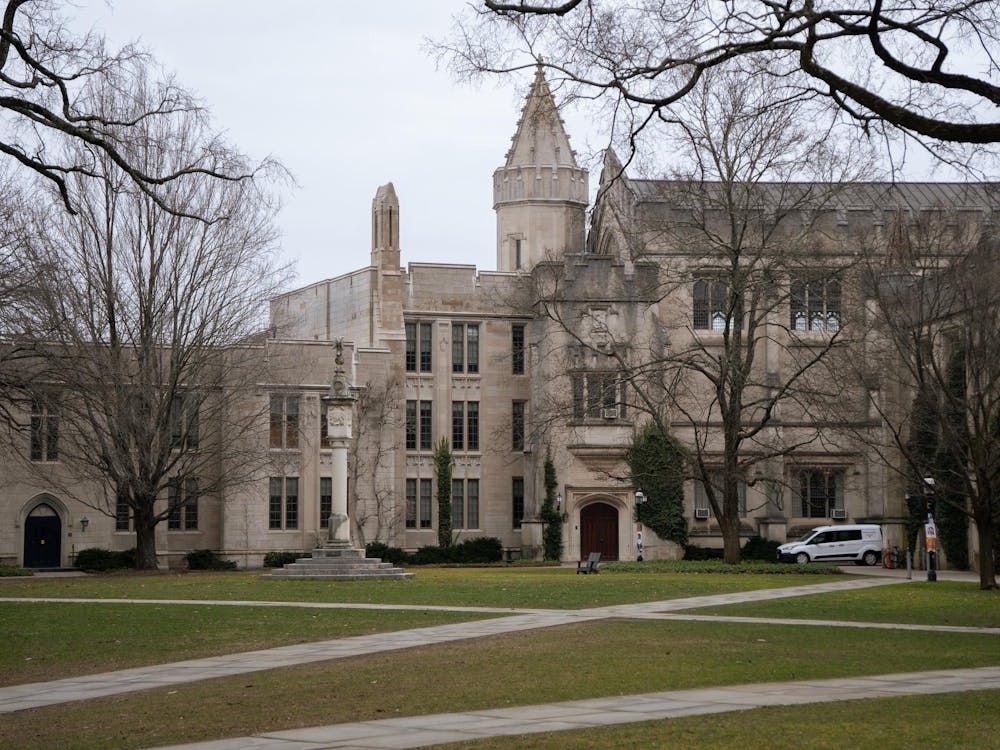During her visit to campus last week, U.S. Supreme Court Associate Justice Sonia Sotomayor challenged students’ levels of civic engagement and willingness to move past political dogma. In response to a question about what citizens should do when they disagree with a court’s decision, she asked the large crowd of Princeton students: “Has everyone in this room read even one Supreme Court decision from beginning to end? How many of you can raise your hand?” Few hands went up.
Justice Sotomayor went on to discuss how judges must not prematurely opine but must rather keep an open mind and reserve judgments until they hear arguments from both sides. She broadened this message to students by saying, “Your opinions shouldn’t control outcomes.”
Justice Sotomayor’s words highlight an aspect of the country’s political atmosphere that should be at the forefront of our minds as Princeton students: the importance of open-mindedness. President Eisgruber has articulated a vision of free speech that benefits all sides of the political spectrum — progressives, whose speech is currently under attack, and conservatives, who have been clamoring for this restriction of speech for a long time. Now, it’s up to students to make this vision a reality, bearing Justice Sotomayor’s advice in mind, by fully considering all arguments and viewpoints, even those they disagree with.
President Eisgruber and Justice Sotomayor’s messages are reminiscent of what former president Barack Obama told a crowd of students at Hamilton College on April 3: “the idea of canceling a speaker who comes to your campus, trying to shout them down and not letting them speak … that’s not what America should be about. You let them speak, and then you tell them why they’re wrong. That’s how you win the argument.”
But at Princeton, we haven’t been living by this advice. When former Israeli Prime Minister Naftali Bennett spoke on campus last week, he was shouted down by protestors, one of whom allegedly pulled a fire alarm. Rather than considering the views of those they disagreed with and respectfully telling Bennett why they thought he was wrong, these students refused to engage entirely.
Students hoping to express their dissent should do so after allowing someone to speak. Though some students found Bennett’s views troubling, that makes it especially important for them to express their ideas in a civil way. Otherwise, they normalize suppression of controversial views, which sets a precedent that may enable the suppression of their own views in the future.
While President Eisgruber argues for the importance of academic freedom, it’s up to the campus community to realize those values. Only we can demonstrate to the world that we are capable of having complex and civil discussions. Only we can demonstrate that we can form our opinions after we have heard both sides of the argument and not try to prematurely control outcomes. Only we can demonstrate that we are not hurting the values of academic freedom of expression by adopting messages or rhetoric that undermine the very principles for which we proclaim to stand.
Just as Justice Sotomayor must adjudicate on the Supreme Court after hearing arguments about complex issues, Princeton students must make judgments about equally nuanced issues and develop informed opinions. Our judgements — and our dissents — shape who we are and our pursuit of truth. We should seek to emulate Justice Sotomayor’s thoughtful deliberation process by leaving our preconceptions at the door and finding civil ways to express our disagreements.
Judges, like Justice Sotomayor, are obligated by the constraints of their roles to be impartial. Princeton students have no such obligation — we are not detached interpreters of the Constitution but rather active political agents. While our backgrounds and values rightfully shape our political views, we shouldn’t let that inhibit our ability to listen to other perspectives.
In these highly tense times, I invite the Princeton community to be fair — but not necessarily impartial — judges who embody the values we hope to uphold.
Jorge Reyes is an Opinion columnist for the ‘Prince.’ You can read his column, “No Tiger Left Behind,” every three weeks on Wednesday here. He intends to major in Chemistry and is from Louisville (Loo-uh-vul), Ky. He can be reached at jr7982[at]princeton.edu.









